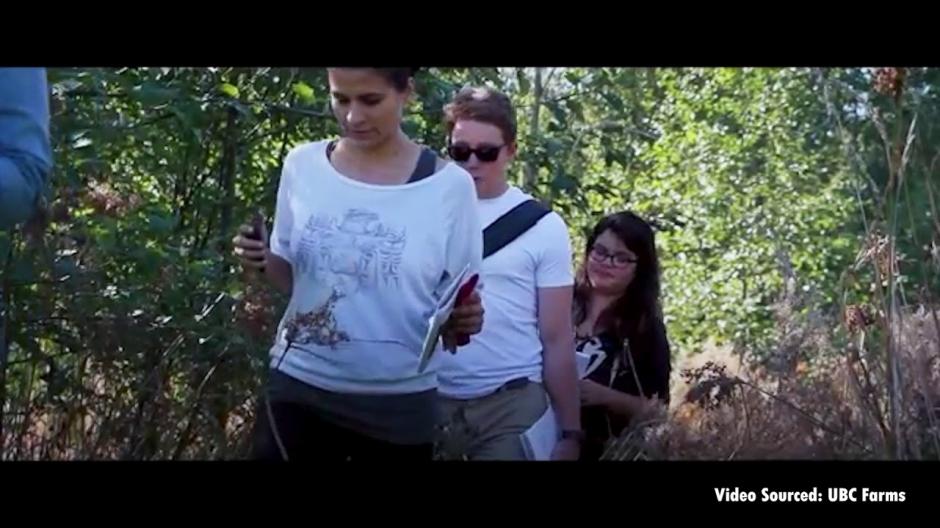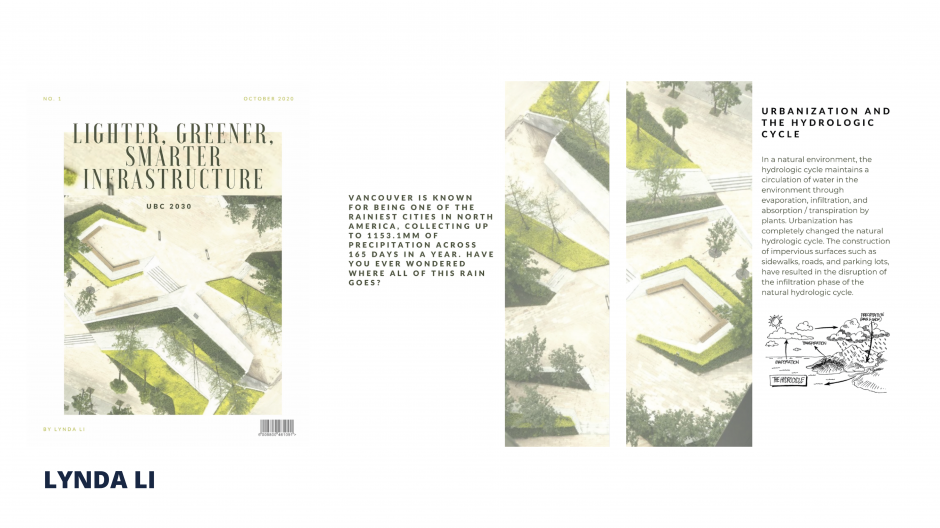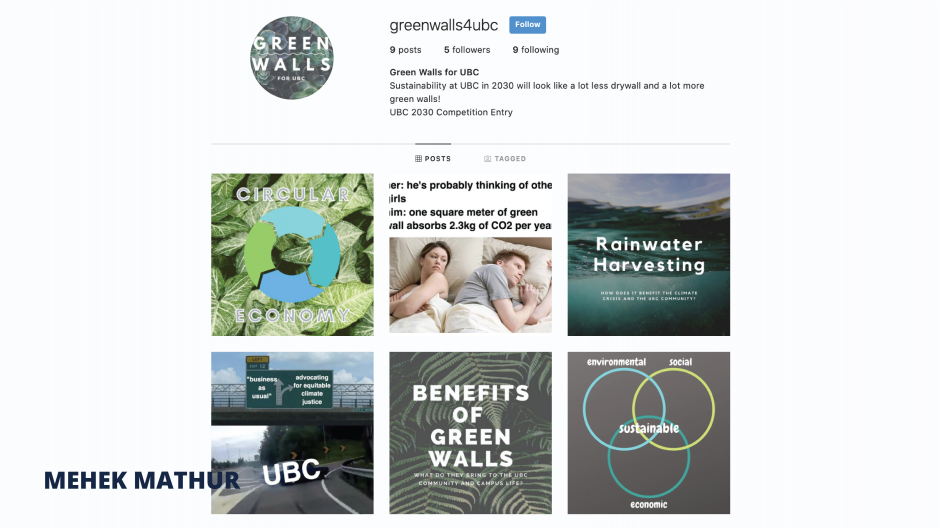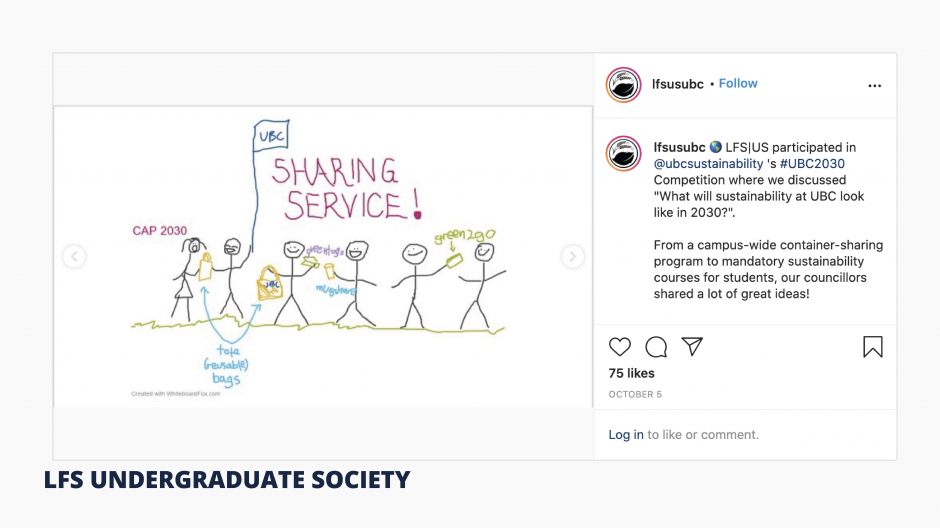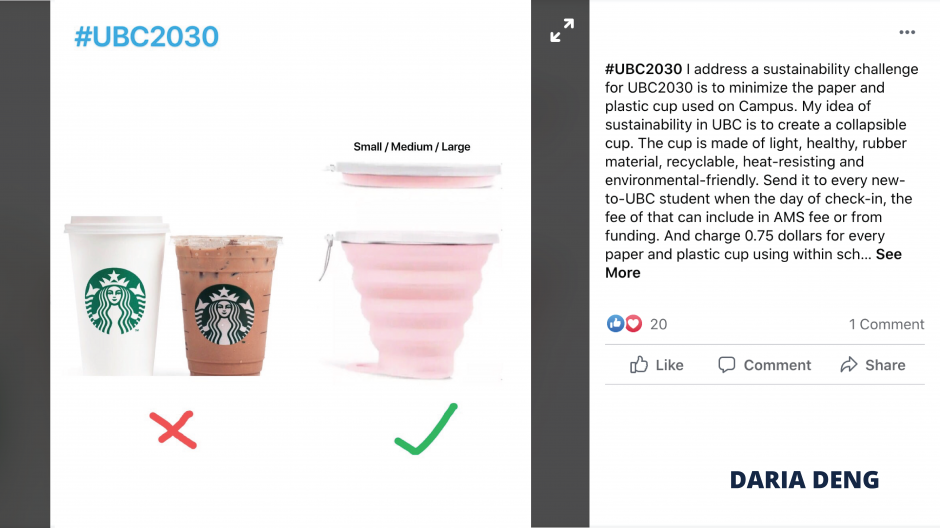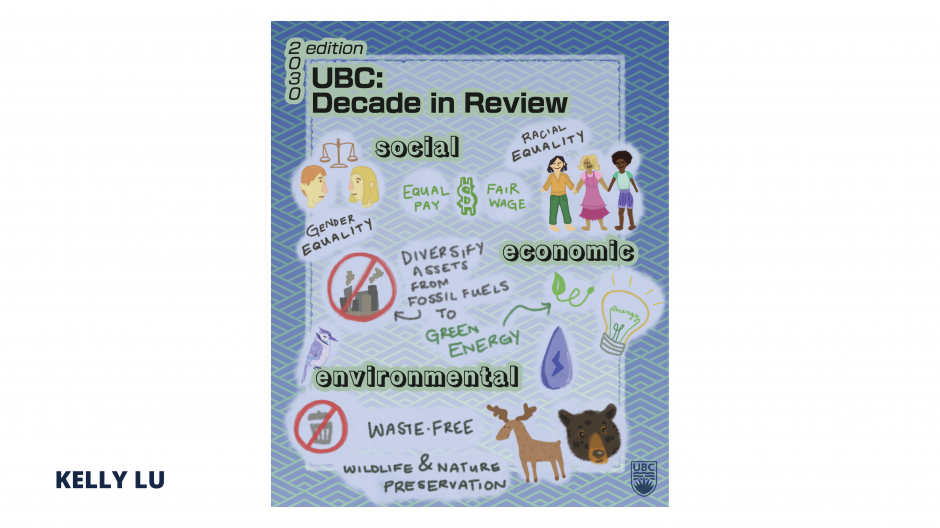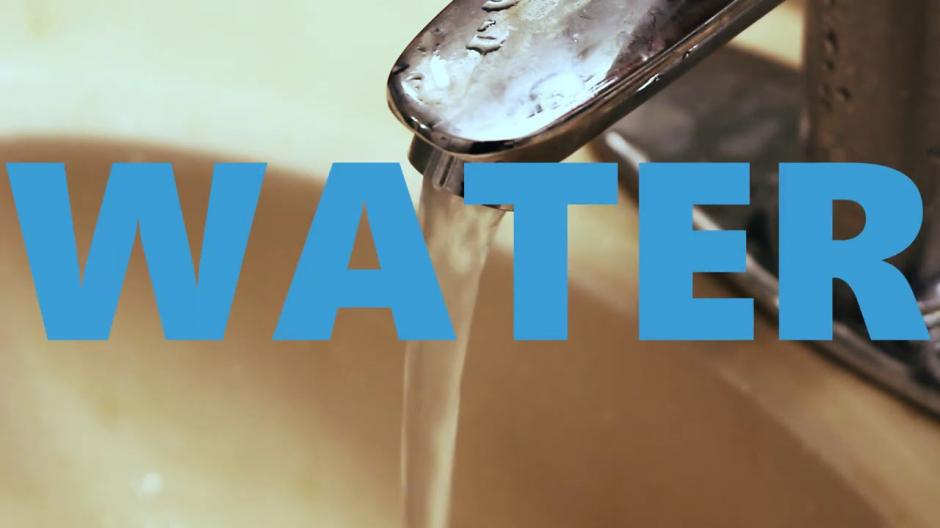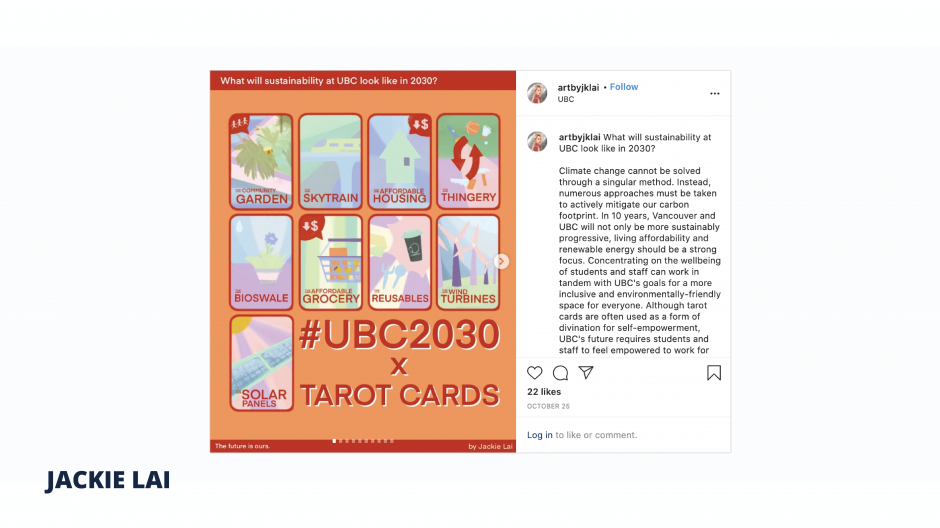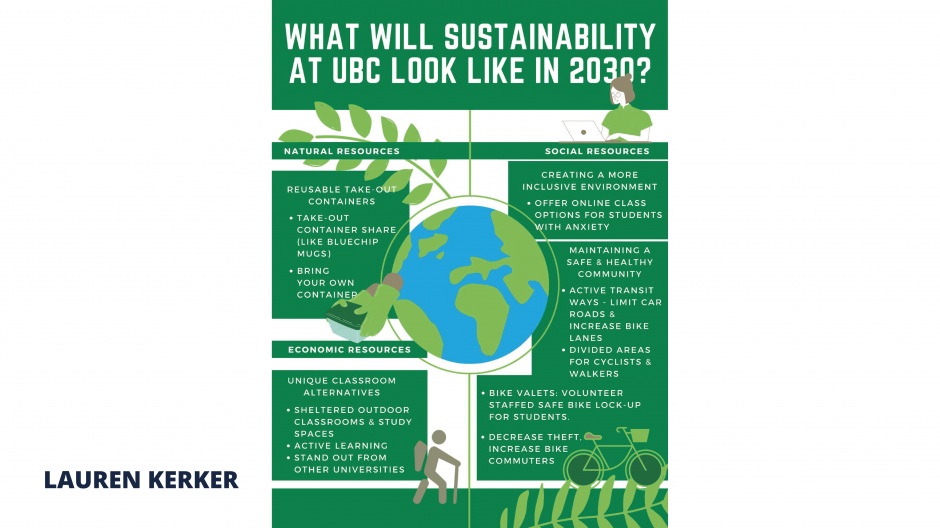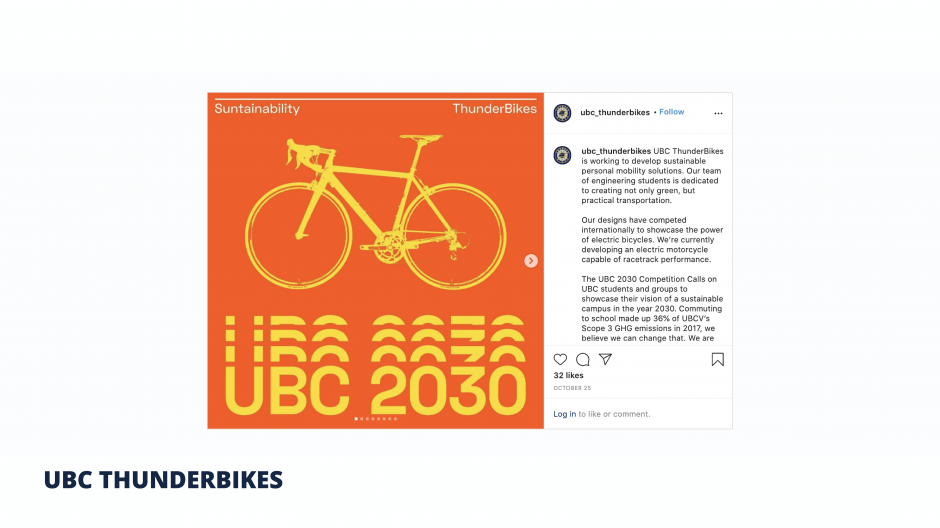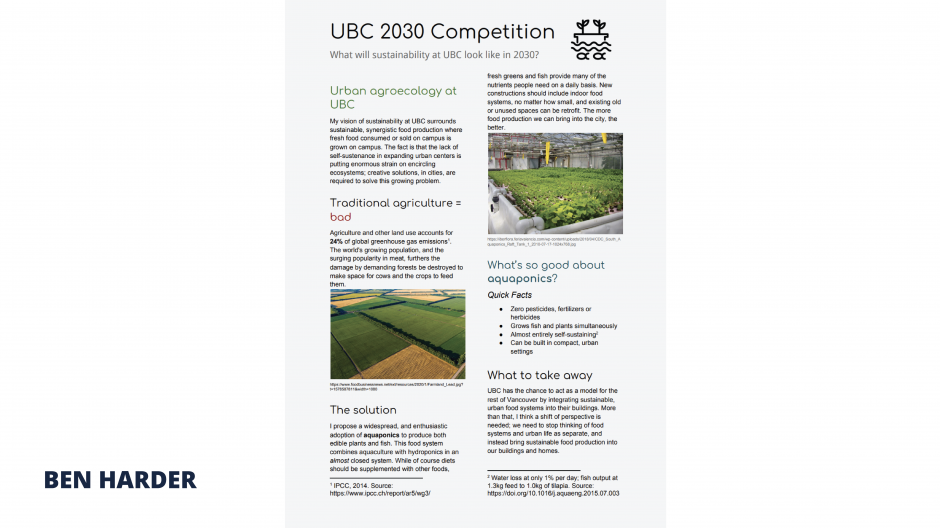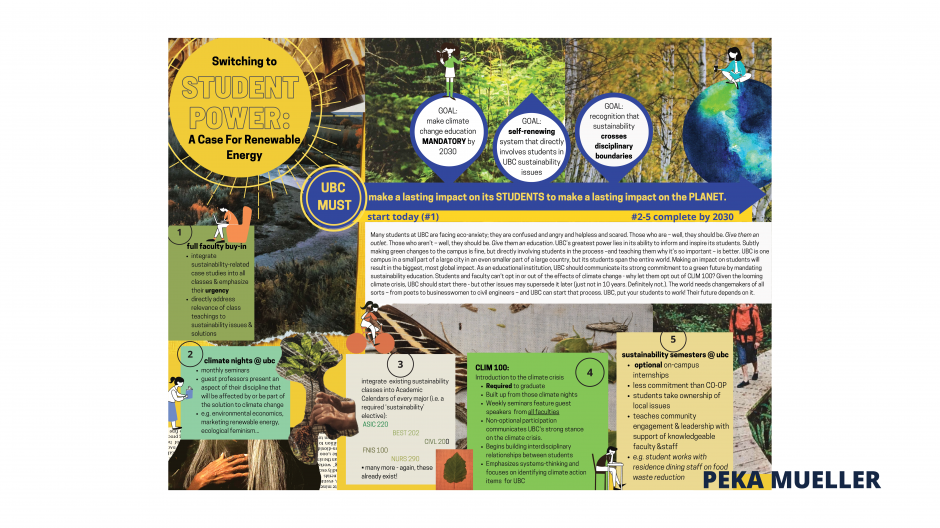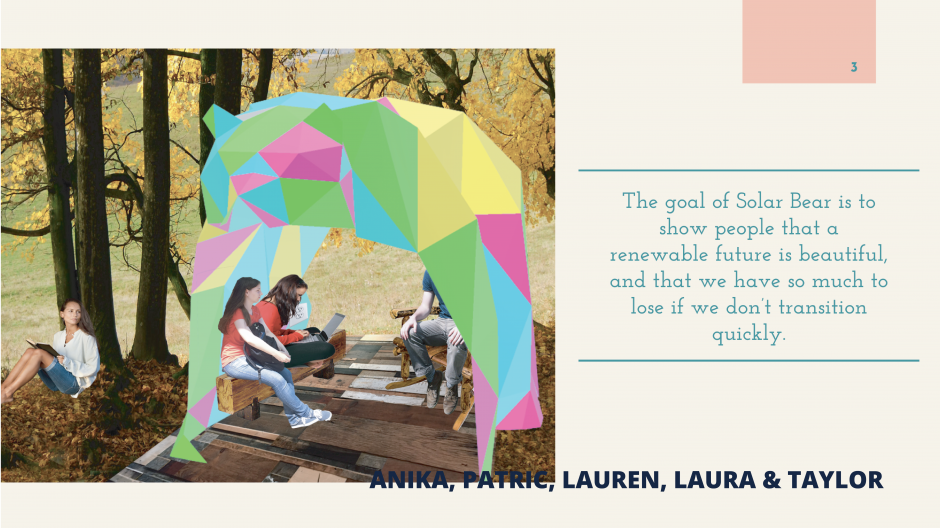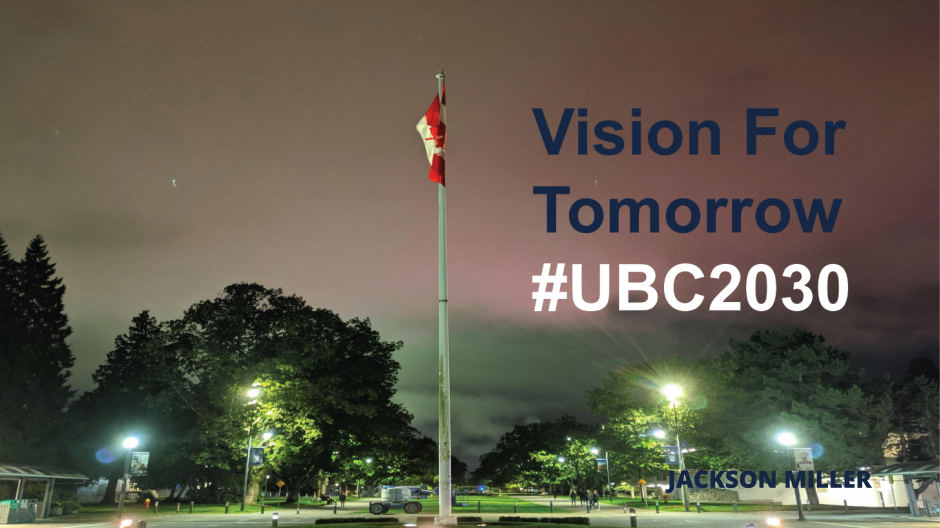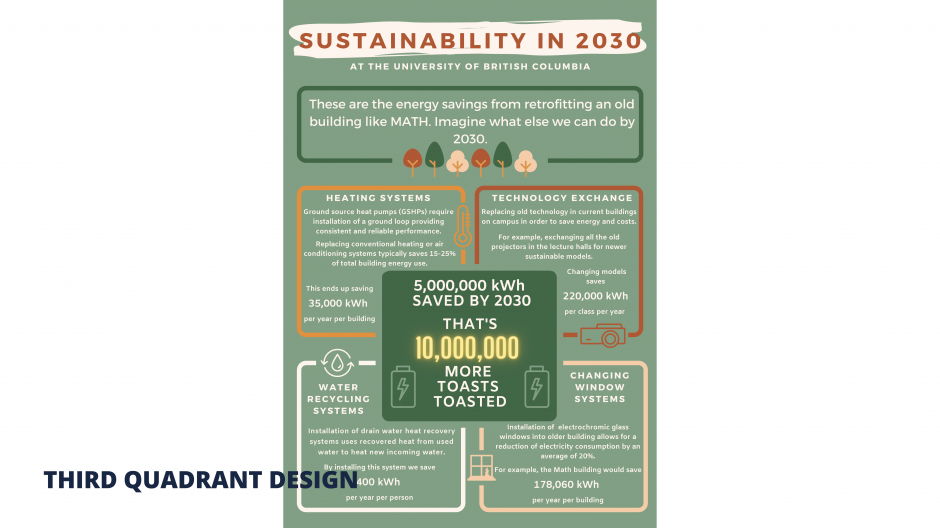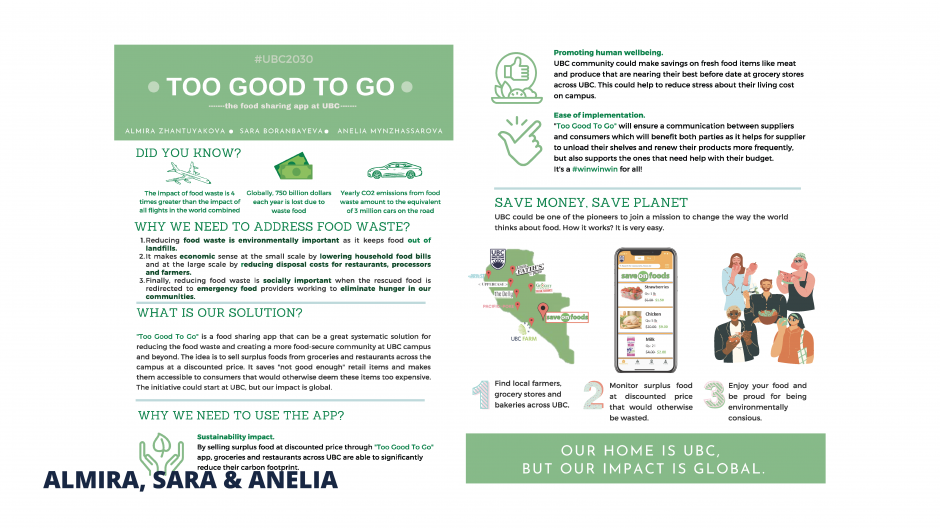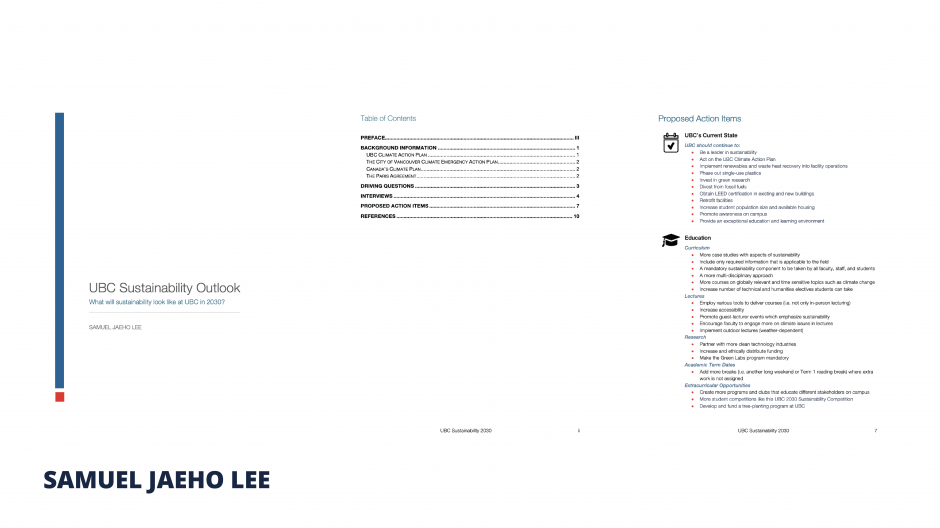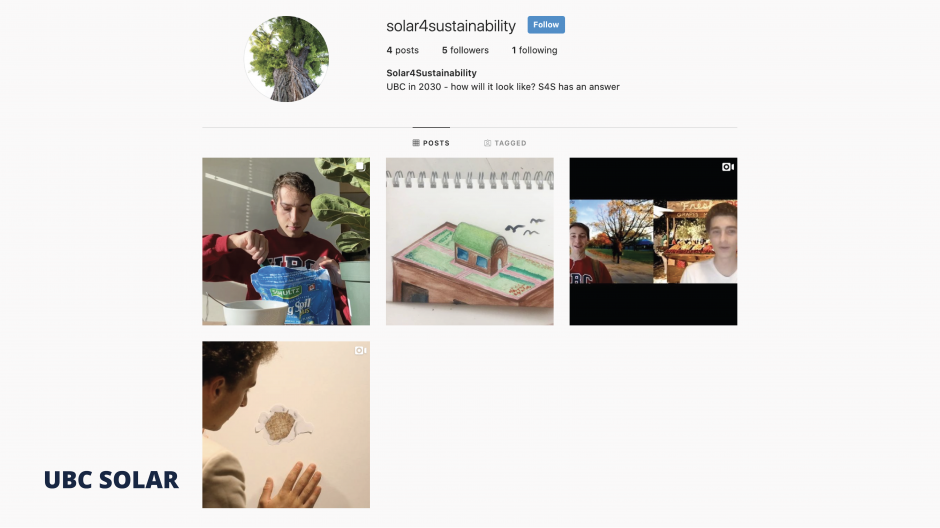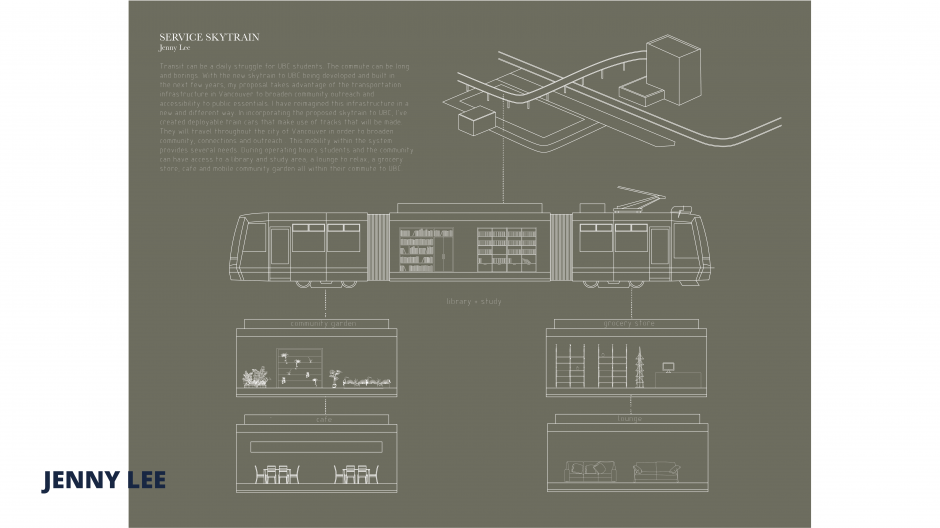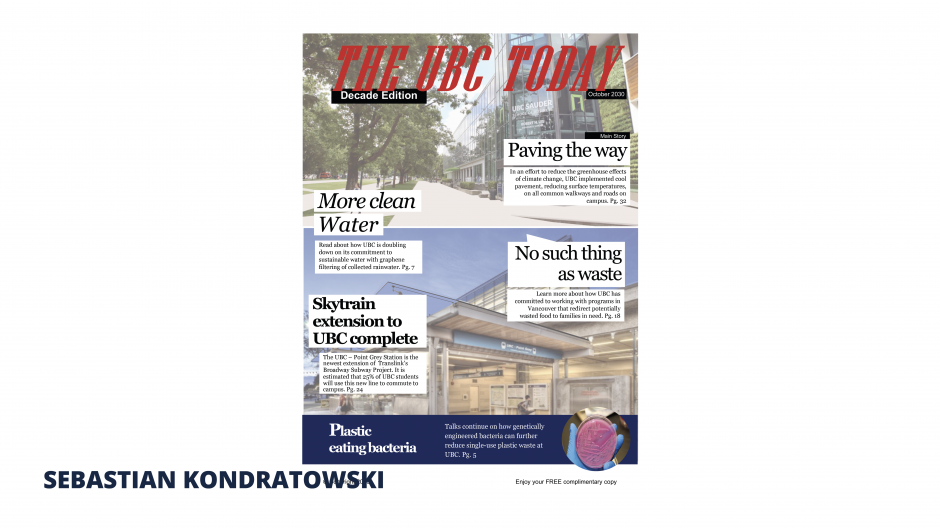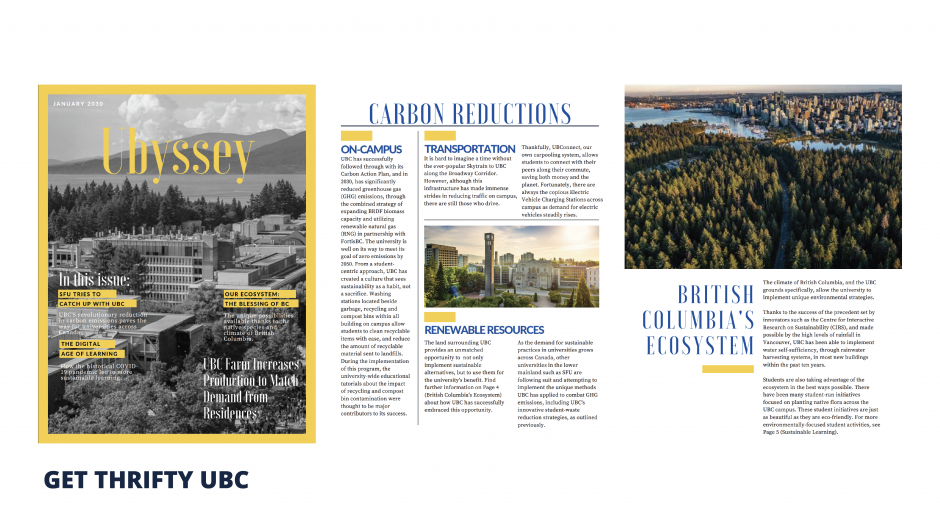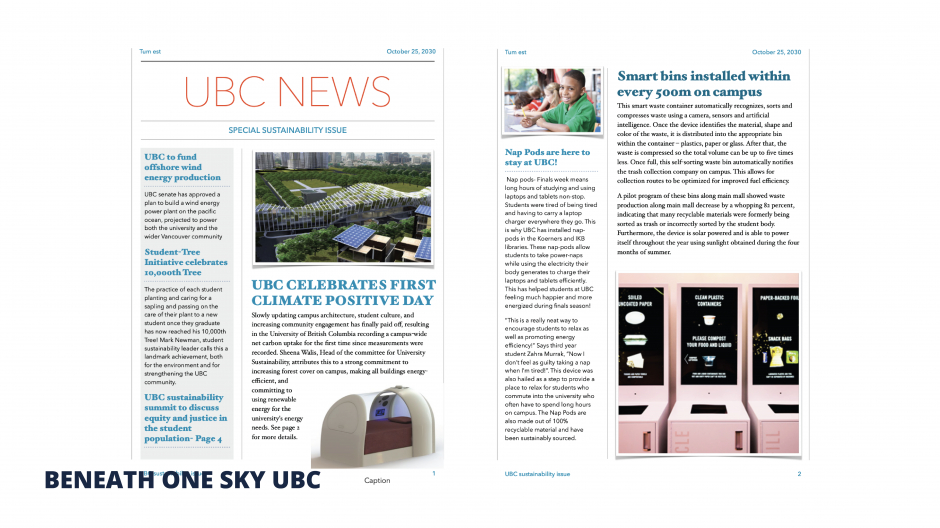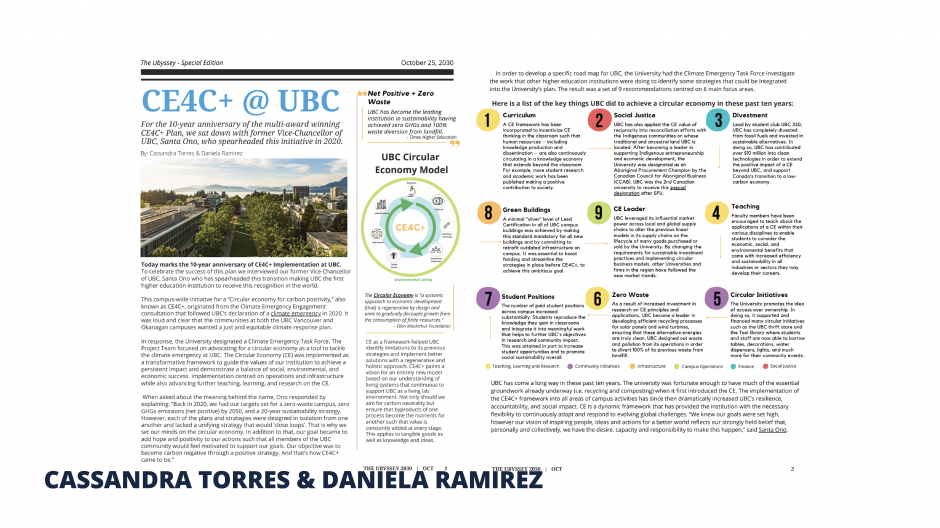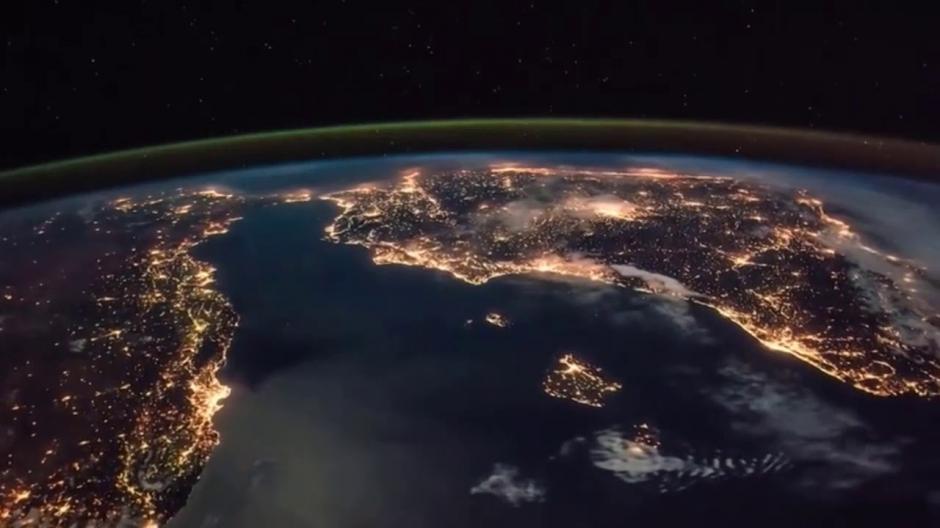What will sustainability at UBC look like in 2030? We called on individual students and student groups or clubs to submit ideas on the future of teaching, learning, research, operations, infrastructure, and community engagement at UBC.
THE CHALLENGE
Whether it was a 30-second video clip, photo series, mock newspaper or magazine cover, multimedia art, or song, we wanted students to get creative in response to the question: What will sustainability at UBC look like in 2030?
Thought starters
We gave students some more questions to start the ball rolling:
- Which of UBC’s efforts on climate action do you think are working, and what new things do you want to see in the next 10 years?
- How could UBC rethink using our physical campus spaces to promote human wellbeing and biodiversity?
- How can UBC be more inclusive, equitable, and sustainable at the same time?
THE WINNERS
Our judges selected five winners from over 40 amazing entries. Ideas included tackling climate change, ending environmental injustice, transforming food systems, protecting nature, green building and building retrofits, zero waste, and other sustainability issues. Ideas focused on campus, but they also expanded into life beyond UBC.
"We are blown away by the creativity and passion of the UBC students who envisioned a more sustainable UBC in 2030 for our contest," said Linda Nowlan, Senior Director of the UBC Sustainability Initiative. “If we can realize the visions of our students who entered the contest, there is hope for a more sustainable world.”
Climate Justice UBC | Rachel Cheang & Nafeesha Alibhai
UBC 2030 - The Past, Present, and Future of Canada | Daphne Liu
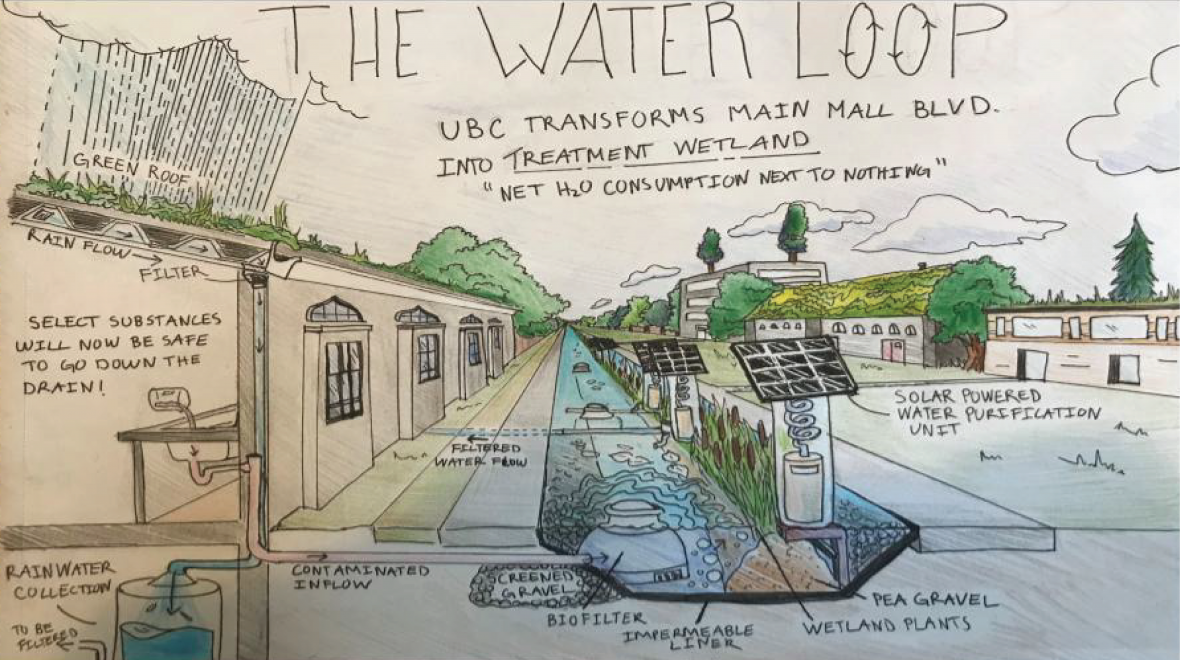
The Water Loop | Marc Massicotte
Eco Magazine | Lindsey Palmer & Caelin Palmer
Third Quadrant Digest | Third Quadrant Design Team
all the ENTRIES
Take a tour through all of the entries we received for the #UBC2030 competition. There are so many good ideas in here, our judges had an extremely tough time choosing just five prize recipients.
JUDGING criteria
Our panel of judges used a scoring rubric to assess each entry, consisting of the following criteria.
-
Sustainability impact. Does your idea promise real and persistent impact and demonstrate a balance of social, environmental, and economic success?
-
Creativity and originality of ideas. Is your idea original and unique? Or are you suggesting a new way to look at an existing idea?
-
Feasibility. Can your idea be implemented at UBC in the future?
-
Quality. Is your idea communicated and demonstrated clearly and effectively through your selected multimedia format?
Prize sponsors



























